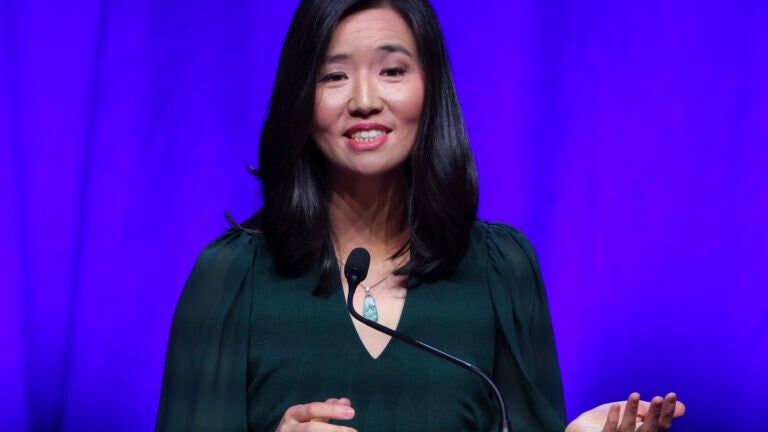Newsletter Signup
Stay up to date on all the latest news from Boston.com

Last month, it was reported that Mayor Michelle Wu is accelerating plans to propose a form of rent control in Boston. Rent control, or rent stabilization was a core part of Wu’s mayoral campaign in 2021. Last week, Wu officially filed her proposal with the City Council.
Now, prominent members of the real estate industry are amplifying their opposition to the idea. The Greater Boston Real Estate Board began a major campaign to fight rent control this week by reaching out to Boston residents directly.
The campaign, dubbed “Rent Control Hurts Housing,” is looking to reach members of the public through a coordinated blitz of text messages, direct mail, and digital videos. Phone banks are being assembled to connect residents with Boston City Council members, and people are being asked to send pre-written messages to Wu and the councilors urging them to move in a different direction.
The campaign centers on claims that rent control leads to a decrease in housing supply and a subsequent increase in housing costs.
“Rent control is a failed policy solution that won’t help the dire need to create housing in Boston and across the Commonwealth. Rent control, also known as rent stabilization, has been shown to decrease housing production of future units, as well as discourage upkeep and maintenance of controlled units,” GBREB CEO Greg Vasil said in a statement last month.
Vasil also said that limiting construction would make the city’s housing crisis worse, and that rent control would limit property tax collections for a city that “heavily depends” on them as a source of revenue.
Wu’s plan would allow landlords to increase rent by 6% plus the consumer price index, which measures inflation. The total increase could not exceed 10% in a year, and tenants would be protected by a “just cause” eviction ordinance. Owner-occupied properties with six units or fewer would be exempt, as would new apartment buildings during their first 15 years after receiving a certificate of occupancy.
“Tenants in Boston are often victim to steep rent increases, making it impossible for them to stay in their homes,” Wu wrote in a letter to the City Council. “In 2022, advertised rents across the city increased by 14 percent, while several neighborhoods saw increases in excess of 20 percent.”
Councilors will discuss the proposal at a hearing Wednesday morning. The GBREB campaign is urging members of the public to provide testimony during the hearing.
If the City Council does eventually sign off on Wu’s plan, lawmakers on Beacon Hill would assess it next. If the plan clears that hurdle, Gov. Maura Healey would still have to sign off on it before the plan officially becomes law.
Massachusetts residents voted to eliminate rent control throughout the state in 1994. At the time, rent control policies were only in place in Boston, Cambridge, and Brookline.
After taking office, Wu formed a Rent Stabilization Advisory Committee to study possible plans for the city.
In a 2021 survey of registered voters, 59% of respondents said that they would “strongly” support “rent control to prevent landlords from raising rents too much.”
The GBREB is currently planning to spend just under $400,000 on its campaign opposing rent control, The Boston Globe reported. Organizers are leaving open the possibility of spending more if the proposal advances to the Legislature. National real estate industry affiliates are helping the GBREB fund the campaign.
“It’s really important to go out and try to reach as many voters in the city of Boston to make sure that they fully become aware and understand what’s going on with this policy,” Vasil told the Globe.
Stay up to date on all the latest news from Boston.com
Stay up to date with everything Boston. Receive the latest news and breaking updates, straight from our newsroom to your inbox.
Conversation
This discussion has ended. Please join elsewhere on Boston.com